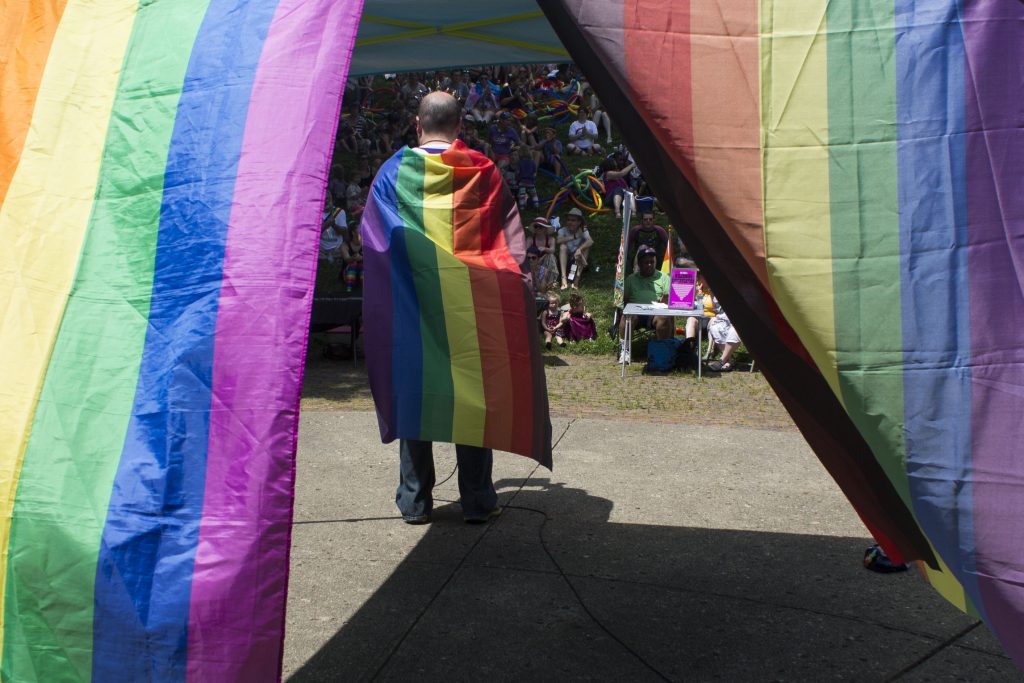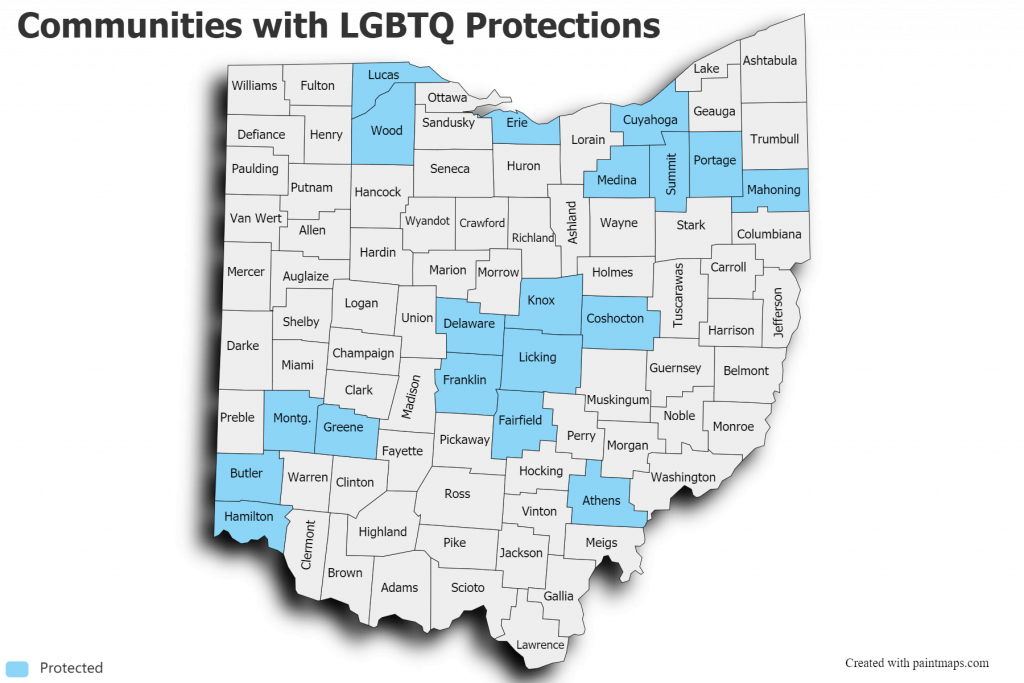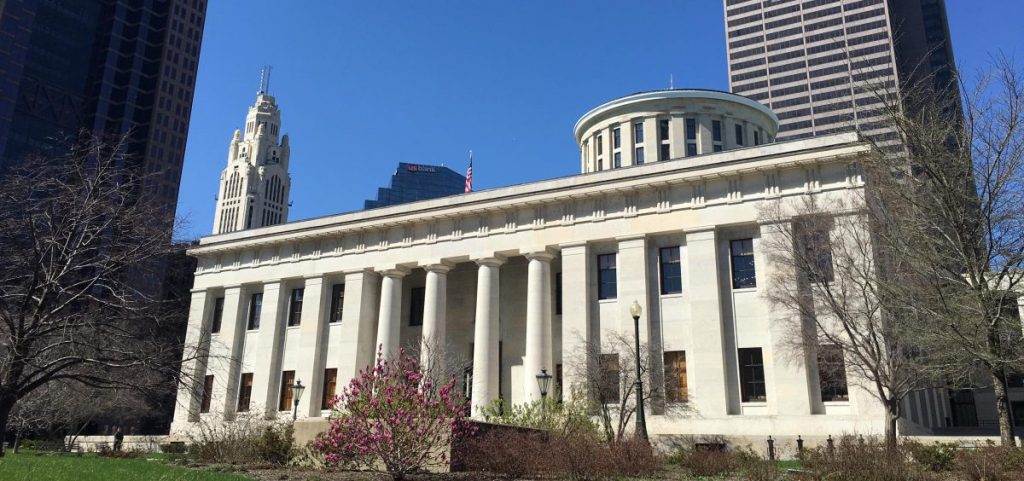
Ohio’s Complicated History with the LGBTQ Community
By: Eric Boll
Posted on:
COLUMBUS, Ohio — Ohio has had a complex relationship with LGBTQ community, going as far as to amend its constitution to declare marriage between a man and a women.
This decision didn’t last long though as this amendment was made invalid by Obergefell v. Hodges, which ruled that same-sex marriage was protected by the U.S. Constitution. Members of the LGBTQ community, however, are still having to fight for everyday rights as Ohioans.

The Current Situation
“We don’t really have any protections for transgender Ohioans on the books,” said Elizabeth Bonham, a staff attorney for the American Civil Liberties Union of Ohio. Bonham is currently representing the ACLU and four transgender individuals suing the Ohio Department of Health over the policy of not changing the gender marker on birth certificates.
Ohio and Tennessee are the only two states in the country with this policy still in place, according to the ACLU. This, however, is just one of the many cases the Ohio branch of the ACLU is fighting in court to gain protections for LGBTQ Ohioans.
“I represented a woman a few years ago who was refused services at a Family Dollar store on the basis of her gender identity,” Bonham said. “Luckily in that situation the local jurisdiction had a anti-discrimination law we sought redress under.”
Not every jurisdiction has anti-discrimination legislation though. Bonham described current protections as a “patchwork quilt” that doesn’t cover everything.
“Localities in Ohio have passed their own anti-discrimination laws … and it’s a step in the right direction but they just don’t have the kinds of remedies offered by statewide laws,” Bonham said. “Lets say you live and work in different jurisdictions. You could be protected in your home jurisdiction but not in your employment jurisdiction.”
Bonham said she believes part of the reason that this “patchwork quilt” exists is due to a lack of public awareness.
“I think a lot of people who aren’t impacted by (this discrimination), CIS people, straight people, think that these protections do exist. I think a piece of it is saying ‘hey listen this is a problem.”

The Consequences
Theodore Pavlich knows first hand the impact of this discrimination. He was forced to leave his apartment in 2014 after his landlord ran a background check and found out he was transgender.
“I had no protection, it was totally legal for him to ask me to leave on the basis of my gender identity,” Pavlich said in a testimony given to the Ohio legislature. “Maybe I could have fought him, but I
was living hand to mouth at the time and couldn’t handle something else on my plate.”
Pavlich had to move back home in the middle of the semester and commute to school every day using his car. This sudden change in expenses was too much for Pavlich to handle and caused him to drop out of school.
“Eventually, due to the financial and emotional strain, I had to withdraw from classes with half of the semester already completed,” Pavlich said. “Numerous other repercussions resulted from my sudden homelessness, and this is just one instance of discrimination I’ve faced as a transgender resident of Ohio.”

Legislative Hope
Members of the LGBTQ community still have hope though as they are finally seeing representation in the Ohio legislature.
“I myself am a part of the LGBTQ community,” said Nickie Antonio, a member of the Ohio Senate representing District-23. “I’m the first lesbian legislator to be elected and serve in both the Ohio House and Senate.”
Antonio said she was motivated to get into politics after Ohio amended its constitution to stipulate that marriage be between a man and a woman. Antonio herself contributed to the “patchwork quilt” of protections by helping get an anti-discrimination statute passed in her home community of Lakewood.
Antonio has introduced numerous bills in both the Ohio House and Senate attempting to grant more protections to the LGBTQ community. Among those bills is HB160, a bill seeking to protect LGBTQ Ohioans from discrimination in housing, employment, education and health services.
Despite support from numerous legislators there are still those who oppose these protective measures.
“We hear the argument that this is something which needs to fought on a case-by-case basis in the courts rather than public policy,” Antonio said. “The problem is that if the standard is not there for protections to begin with, then you have no case in court. If discrimination isn’t recognized as being an aggrievement … then you have no case.”

